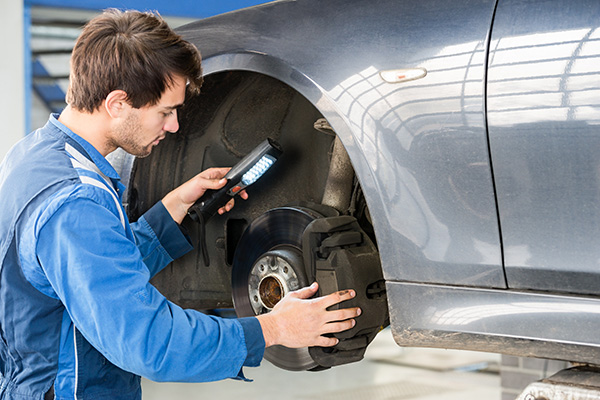
Your brakes are one of the most critical safety systems in your vehicle. While most drivers know to watch for major warning signs like grinding noises or a soft brake pedal, some brake problems are easier to miss but just as important to address. Ignoring small brake issues can lead to more expensive repairs and, more importantly, compromise your safety. Here are five common brake problems that many drivers often overlook.
1. Brake Pedal Vibration
If you feel a vibration or pulsation in the brake pedal when stopping, it often indicates warped brake rotors. Rotors can become uneven from excessive heat, aggressive braking, or worn-out pads.
Many drivers dismiss this as a minor annoyance, but it indicates that your braking system isn’t working as smoothly or effectively as it should. Left unresolved, it can lead to further wear and longer stopping distances.
2. Squealing or High-Pitched Noises
While loud grinding noises usually signal that your brake pads are completely worn out, softer squealing or high-pitched noises can be an early warning.
These sounds often come from wear indicators built into the pads or from glazed brake pads and rotors. The noise may come and go, so it’s easy to ignore — but catching it early can help you avoid more serious and expensive repairs later.
3. Uneven Braking or Pulling to One Side
When your car pulls to one side while braking, it often means there’s an issue with one of the brake calipers, uneven pad wear, or even problems in the hydraulic system.
Some drivers assume it’s a wheel alignment problem, but if the issue happens primarily during braking, it’s likely a brake-related concern. This condition reduces control and can increase stopping distances, making it especially hazardous in emergency situations.
4. Spongy or Soft Brake Pedal
A spongy brake pedal can develop slowly over time, making it easy to overlook. However, it usually means there is air or moisture in the brake lines or that the brake fluid is contaminated.
Brake fluid absorbs moisture over time, which can lower its boiling point and reduce braking effectiveness. If you notice your pedal feels softer than it used to, it’s crucial to have the system checked and possibly flushed to restore proper braking power.
5. Warning Lights
Modern vehicles are equipped with brake system warning lights on the dashboard, but drivers sometimes dismiss these alerts, thinking they’re just sensor glitches.
These lights can signal low brake fluid, worn brake pads, or ABS system issues. Ignoring these warnings can lead to more severe failures and higher repair costs. Always take dashboard alerts seriously and have your vehicle inspected as soon as possible.
Why Early Attention Matters
Brakes wear down gradually, and small issues might not seem urgent. However, worn pads can lead to damaged rotors, and neglected fluid can corrode brake lines and other components. Addressing small problems early helps maintain your braking system’s performance and saves you money by avoiding bigger repairs.
Regular Inspections Are Key
A comprehensive brake inspection includes checking pad thickness, rotor condition, brake fluid quality, and all hardware. Most experts recommend having your brakes inspected at least once a year or during every oil change, especially if you notice changes in braking performance.
Maintain Your Brakes with B&C Auto Center in San Jose, CA
Your brakes are too important to leave to chance. At B&C Auto Center in San Jose, CA, our skilled technicians perform thorough brake inspections and maintenance to keep you safe on the road. Whether you're hearing odd noises, feeling pedal changes, or simply want peace of mind, we’re here to help.
Schedule your brake inspection today and drive confidently knowing your car can stop as reliably as it should.